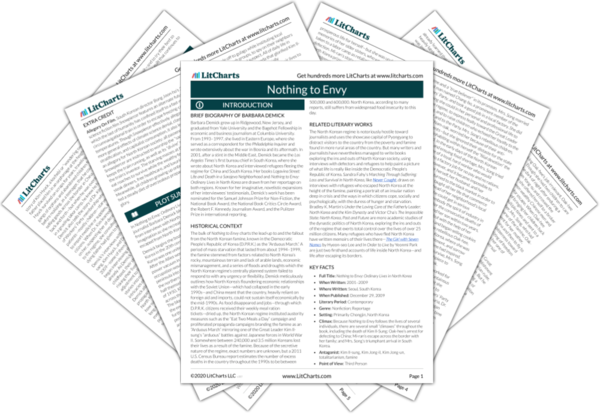At his university,
Jun-sang was, as an elite student, allowed to read some Western literature. Novels like
Gone with the Wind and
One Hundred Years of Solitude had charmed him—but when he began reading nonfiction about human sexuality, Communism, foreign politics, and economics, he found his eyes opening to the regime’s faults. After graduating in 1996, Jun-sang moved into a small apartment in Pyongyang. He got permission to purchase a
television. Though it was dangerous, he constructed an antennae attachment that would let him watch South Korean television late at night while his neighbors slept. Though officials from a special bureau dedicated to the regular inspection of televisions paid a visit, Jun-sang was able to cover up what he was doing.
